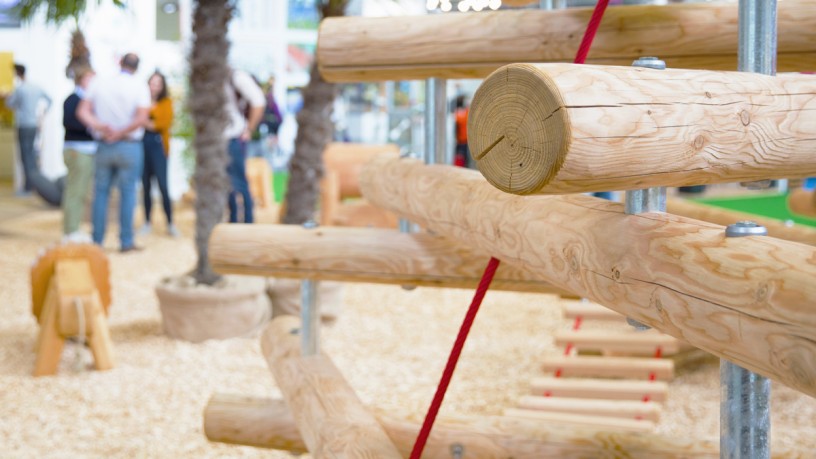Synthetic turf: Product environmental footprint rules
Unlocking the Future of Sports and Leisure Facilities: Join the interactive IAKS Follow-Up Webinars!
The IAKS possesses a remarkable asset within the sports and leisure facilities industry - a dynamic network of experts and visionaries dedicated to shaping the future of this field. Our goal is to share this invaluable knowledge not only with our members but also with the public to enhance sports and leisure facilities for all.
Following our IAKS webinar day on sustainability, five speakers will host in-depth follow-up webinars, offering greater insights and detailed discussions on their subjects.
These follow-up webinars will take place in smaller groups, fostering an environment for meaningful knowledge exchange, vibrant discussions, and valuable networking among participants. Best of all, this entire webinar series is free of charge for IAKS members!
Non-members can also participate for a fee of €70.
Don’t miss this unique opportunity to learn from industry leaders, share your experiences, and ignite your passion for making sports and leisure facilities more sustainable.
Interactive IAKS webinar on 19 November 3 – 5PM (CET)
Topic: “Synthetic turf: Product environmental footprint rules”
Synthetic turf surfaces provide high-quality, safe, and long-lasting sports surfaces that can sustain high levels of use in most weather conditions. For many, they are the most viable way of providing the sports facilities community’s desire. But they are man-made and like all manufactured products, their production, use and final disposal can impact on our planet. In recent years, there has been a growing interest in sustainable and environmentally responsible practices among consumers, governments, and corporations and this is increasingly influencing how synthetic turf surfaces and produced and used.
One key aspect of sustainability is the life cycle analysis (LCA) of products, which assesses the environmental impact of a product throughout its entire life cycle with the goal of identifying opportunities for reducing a product's environmental impact and improving its overall sustainability. There are a number of different ways of undertaking a LCA study and this can cause confusion when different approaches are used by companies operating in the same market sector. Recognising the need for a harmonised approach, the European Commission developed the Product Environmental Footprint (PEF) methodology. To ensure PEF studies are always undertaken in the same way the European Commission is working with industry sectors to develop the category rules that define how a PEF study should be undertaken for a specific group of products.
Over the last four years, the European Synthetic Turf Council (ESTC) has been working with the European Commission to develop the requirements of PEF studies for synthetic turf. This project has recently been concluded meaning manufacturers of synthetic turf surfaces for sport and landscaping applications can now assess the environmental impact of their products and identify ways to reduce that impact. The publication of the PEF rules also now means consumers have the tools to assess the environmental impact of the products they are being offered with the certainty they are comparing apples to apples, allowing environment impact criteria to become a key component of procurement policy.
About Prof. Alastair Cox:

Prof. Alastair Cox
Alastair Cox is the Technical Director at the European Synthetic Turf Council (ESTC), the trade association for the European, Middle East and Africa synthetic turf industry. With over 45 years’ experience in the industry, his career has seen him primarily working in the testing and certification sectors. Today, his role with ESTC sees him leading their technical activities, including engaging with regulatory bodies, standardisation bodies and sports governing bodies. In addition to his work at ESTC Alastair is Visiting Professor of Sports Surface Innovation, at the UK’s Loughborough University.
Source: IAKS





